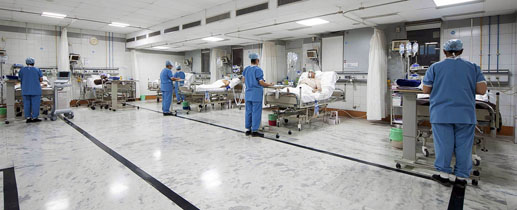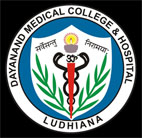What is Breast Cancer? :
Breast cancer is one of the most prevalent types of cancer affecting the Indian population. With its steadily climbing incidence rates, breast cancer has now become the most common type of cancer among Indian women. According to the Indian Council of Medical Research, every one in 22 women will develop breast cancer within their lifetime. There are different types of breast cancer but one which begins in the milk duct is the most common type of breast cancer. Similar to other cancer types, in breast cancer too, the cancerous cells in the mammary glands multiply abnormally and develop into a tumor and then begin to attack lymph nodes or are carried to different parts of the body.
Risk Factors for breast cancer include
* Gender: Breast cancer is 100 times more common among women than men. This is because women possess more of the hormones estrogen and progesterone, which is linked to the development of cancer cells.
* Genetic Inheritance: An estimated 5-10% of breast cancer cases are considered hereditary or mutations that have been passed on from parent to child. Defects in BRCA1 and BRCA2 genes are the most common cause for hereditary breast cancer. These particular genes help prevent cells from mutating or growing abnormally.
* Increased number of menstrual cycles: Women who have had more menstrual cycles due to starting at an early age (before 12 years) or go through menopause at a later age (over 55 years) are at an increased risk.
* Aging
* Family history
* Personal history of breast cancer
* Dense breast tissue
* Previous chest radiation exposure
* Benign breast conditions
* Women having no children or having their first child after the age of 30 years
* Oral contraceptive use
* Increased alcohol consumption
* Being overweight
* Minimal physical activity
Diagnosis of Breast Cancer : Although symptoms may suggest that cancer is present, the use of diagnostic imaging can help confirm whether the cancer really exists. The following are imaging tests that may be conducted in diagnosing breast cancer:
* Diagnostic Mammograms are x-rays of the breast where several images are taken of the area in question. Advanced diagnostic centres offer digital mammograms where the images are recorded, viewed and stored on a computer. Also, the use of digital mammography can allow for images to be sent electronically to other physicians or hospitals.
* MRI scans of the breast use radio waves and a strong magnet inreproducing detailed images of the body. MRI can be used in mammograms in detecting cancer for high risk individuals or can be used to better assess an abnormal area.
* Breast Ultrasound is a test that uses sound waves to create an image of organs and tissue within the body. Ultrasounds are typically used to differentiate between benign and cancerous tumors. Breast ultrasounds should be used in combination with mammograms.
* Ductogram is a test that examines the ducts where nipple discharge occurs. This is done by injecting contrast medium into the affected duct. An image is produced of the duct structure displaying any abnormalities.
* FNAC or biopsy of the breast in which cells or small piece of tissue is taken from the lump and examined under microscope by the pathologist to diagnose the breast cancer
Treatment options for breast cancer
Treatment options may consist of surgery, chemotherapy, radiation therapy, hormone therapy or a combination of these treatments.
* Surgery is performed in order to remove the tumor in the breast and possible surrounding tissues and nearby lymph nodes.
*Chemotherapy uses anti-cancer drugs to kill or stop the growth of cancer cells.
* Radiation uses high-energy radiation beams to eliminate cancer cells or stop them from growing. Radiation therapy consists of external beam radiotherapy and brachytherapy or internal radiation therapy.
* External beam uses localized high energy radiation beams to eliminate cancer cells and keep them growing
* Brachytherapy uses a radioactive substance, usually in the form of seeds which are placed directly into or near the cancer which helps to shrink the tumor.
* Hormone therapy is a treatment that targets specific hormones to the cancer cellsby blocking the properties associated with cell growth.
Common symptoms and
signs of breast cancer :
* Irregular lump in one or both breasts
* Swelling of all or part of the breast, even if no lump is detected
* Skin irritation or dimpling
* Pain in the breast or nipple
* Nipple retraction (nipple turning inward)
* Redness, scaliness or thickening of the nipple or breast skin
* Nipple discharge (other than breast milk)
Do’s and Don’ts for breast cancer management
* Breast Self-Examination should be done by every female every monthly and consult the Surgical Oncologists if she feels any lump in the breast
* Annual Mammography is recommended for all females above 50 years of age to detect breast cancer at an early stage
* Never ignore any lump in the breast
* Avoid high fat diet and alcohol
* Always breast-feed the child as it decreases the risk of breast cancer
* Avoid estrogen-only oral contraceptive pills Child-bearing should be done preferable before 35 years of age
* Always have an active life style and avoid sedentary lifestyle to prevent being overweight If there is strong family history of breast or any other cancers, go for genetic counseling and/or genetic testing.
Facilities available at DMCH Cancer Care Centre
DMCH Cancer Care Centre is a dedicated cancer centre of north India having modern and state-of-the-art infrastructure to treat cancer patients. It follows internationally accepted treatment guidelines to treat the cancers. The cancer centre has various super specialty departments – Surgical Oncology, Medical Oncology, Radiation Oncology, Nuclear Medicine, Hemato-Oncology and Bone marrow transplant facilities and Pain and Palliative Care Department. It has highly qualified and skilled team of Surgical Oncologists.





